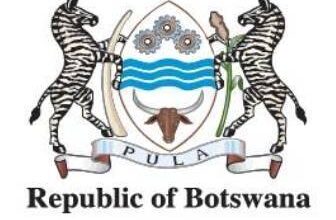Constitution as a supreme law of the land

The aim of this paper is to equip the reader with an understanding of various legal aspects from Botswana perspective.[1] The hope is to foster awareness of these laws and to also serve as a vehicle through which relevant legal issues are disseminated to the public. However, to understand the legal issues it is imperative to understand the basics, that is where it all started. As a result we shall set off by looking at the Constitution of the land, and discern its relevance to the reader in a simplified manner.
WHAT IS THE MEANING OF A CONSTITUTION?
In the broadest sense, Barendt has defined the Constitution thus, “a constitution refers to a country’s supreme law, which contains the guiding principles according to which that country is governed”. More specifically, it is a text which outlines the powers of parliament, the executive, judiciary and other national institutions. It is characteristic of written constitutions, especially those guaranteeing fundamental rights, that they also impose constraints on the powers of the legislature and the government.[2]
Coming closer to home, a more useful example of how a constitution can be defined comes from the case of Botswana. In the case of Unity Dow vs. the Court of Appeal (1992), the Court of Appeal (the highest court in the country), defined a written constitution in the following way:
“A written constitution is the legislation or compact which establishes the state itself. It paints in broad strokes on a large canvass the institutions of the state; allocating powers, defining relationships between such institutions and the people within the jurisdiction of the state, and the people themselves. A constitution often provides for the protection of the rights and freedoms of the people, which rights and freedoms have thus to be respected in all future state action.”
WHAT THEN IS CONSTITUTIONAL SUPREMACY?
Constitutional supremacy means that the Constitution takes precedence over all other laws in a particular country, for example, legislation or case law. It is important to ensure that a Constitution has legal supremacy: if a government passed a law that violated the constitution – was not in accordance with or conflicted with a constitutional provision – such law could be challenged in a court of law and could be overturned on the ground that it is ‘unconstitutional’.
It is worthy noting that the Constitution of Botswana does not make specific provision for constitutional supremacy; however, constitutional supremacy is implied. Constitutional supremacy in simple terms means the Constitution is the highest law of the land. It is the source from all other laws flows from. Thus any other law must be in consonance with. If it is found not to be consistent with the Constitution it is usually rendered void to the extent of its inconsistency.
It is thus of paramount importance that the reader be well read and know the contents of the Constitution for them to be able to assert their rights. It is axiomatic that one can only seek to enforce that which they are aware of. This means you can only be able to say your certain right is being infringed when you know it is provided for in the Constitution.
To build on the foundation laid above, I will take you through the sources of laws in Botswana in our next publication. Knowing the sources of law simply means being aware of where to find the law.
PREPARED BY: KUDA TSHIAMO[3]
[1] The Republic of Botswana is a large country with a small population – approximately 2 million people. The country was a British protectorate from 1885–1966, when it gained full independence from the United Kingdom. Botswana has maintained a multiparty democracy since independence and is generally considered a model of
peace and democracy in Southern Africa.
[2] Barendt, E, An Introduction to Constitutional Law, Oxford University Press (1998). 2 Appeals Court, 1994 (6) BCLR
[3] L.L.M CANDIDATE ( INTERNATIONAL TRADE AND INVESTMENT LAW, UNIVERSITY OF PRETORIA, POST-GRADUATE CERTIFICATE IN ADVANCED TAXATION ( BOTSWANA ACCOUNTANCY COLLEGE), BACHELOR OF LAWS ( UNIVERSITY OF BOTSWANA), LEGAL RESEARCH ASSISTANT ( TRI-AFRICAN ADVISORY SERVICES) , ATTORNEY AT LAW (ADMITTED TO PRACTICE IN THE COURTS OF BOTSWANA).



